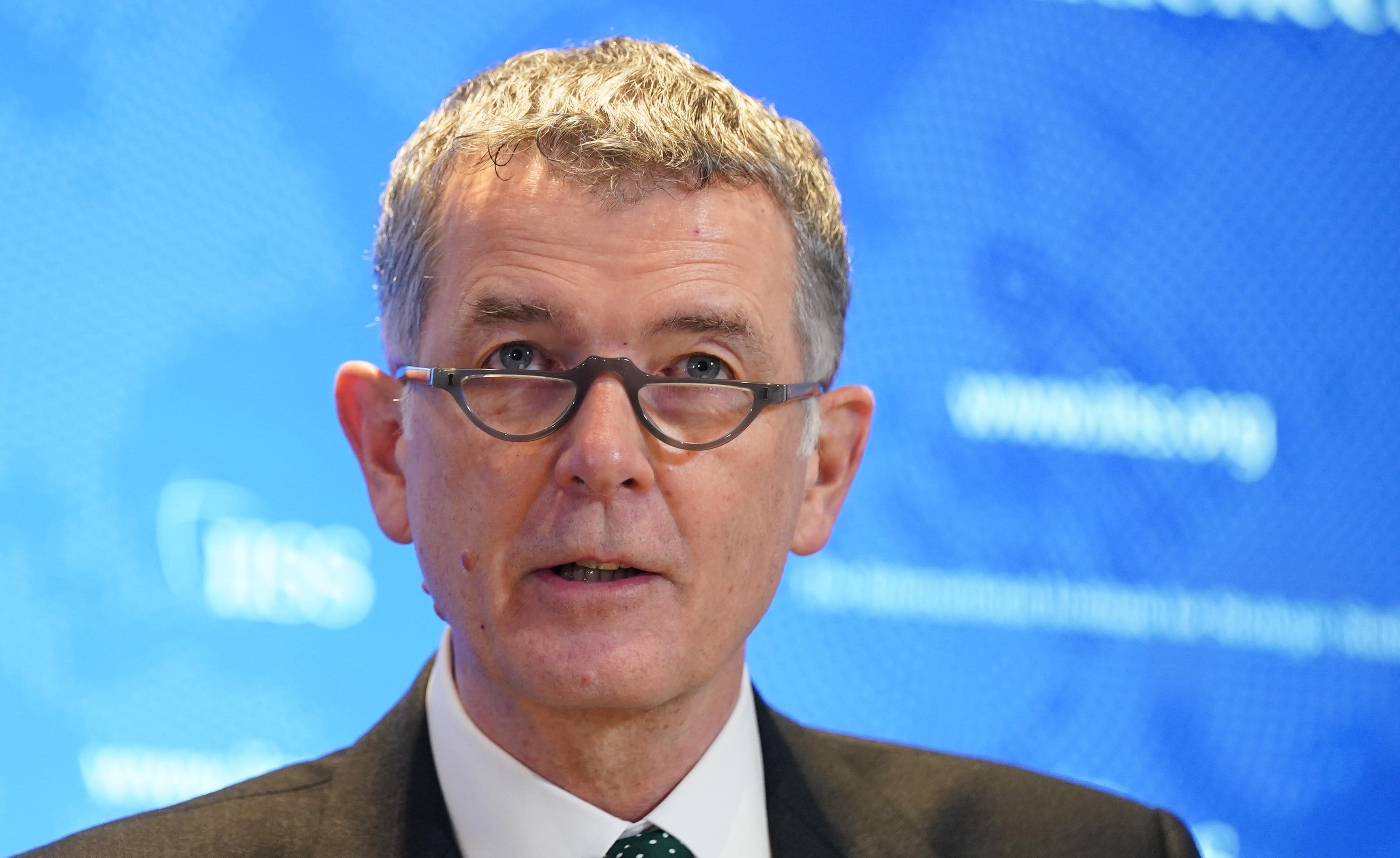UK spy chief: ‘The risk of Chinese miscalculation through overconfidence is real’

MI6 Chief Richard Moore speaks at the International Institute for Strategic Studies, London, where he said that Britain’s intelligence agencies must open up to co-operation with the global tech sector if they are to counter the rising cyber threats from hostile states, criminals and terrorists.
Stefan Rousseau – PA Images | PA Images | Getty Images
Richard Moore, the chief of British secret intelligence service MI6, is concerned that China could make a “miscalculation” due to overconfidence in its own global status.
“The tectonic plates are shifting as China’s power and its willingness to assert it grows,” Moore said Tuesday in his first public speech since he took over as the head of the spy agency last October. The speech was at given Arundel House in London as part of an event organized by the International Institute for Strategic Studies think tank.
“Beijing believes its own propaganda about Western frailties and underestimates Washington’s resolve,” added Moore, who joined the spy agency 34 years ago. “The risk of Chinese miscalculation through overconfidence is real.”
The Chinese embassy in London did not immediately respond to a CNBC request for comment on Moore’s speech.
Tensions between the West and China have escalated in recent years as Beijing and Washington continue to see the world differently.
“There are many areas where our country needs to engage with Beijing including trade and investment, cultural links, and the transnational challenges of climate change and biodiversity,” Moore said.
“But the fact remains that China is an authoritarian state with different values and this is reflected in the threats we see emanating from the Chinese state.”
Headquartered on the banks of the River Thames in Vauxhall, London, MI6 recruits and runs clandestine agents in other countries in order to provide the British government with secret information. The agency, which is the equivalent of the CIA in the U.S., has been made world-famous thanks to the fictional James Bond series, who plays an MI6 agent codenamed 007.
China’s own intelligence services are “highly capable,” Moore said, adding that they continue to conduct large scale espionage operations against the U.K. and its allies, often targeting those working in government or on research of particular interest to the Chinese state.
“Chinese intelligence officers seek to exploit the open nature of our society, including through the use of social media platforms,” Moore said.
A view of the MI6 headquarters in London, England.
Dan Kitwood | Getty Images
There’s a risk that global stability and peace could be disrupted if China decides to use force to resolve the Taiwan issue, Moore said. China sees Taiwan as a breakaway province, while Taiwan sees itself as separate from China, having ruled itself since splitting from the mainland in 1949 following a protracted civil war.
“The Chinese Communist Party leadership increasingly favor bold and decisive action justified on national security grounds,” Moore said. “The days of [former Chinese leader] Deng Xiaoping ‘hide your strength, bide your time’ are long over.”
Beijing has drawn international condemnation for its “extensive program of repression” against members of its Uyghur Muslim minority ethnic group. This includes forced labor, the mass incarceration of over a million people in “reeducation” camps, and the alleged sterilization of Uyghur women, as reported by the news media and the U.S. State Department. Beijing denies that it violates Uyghurs’ human rights.
Moore said “worryingly, these technologies of control and surveillance are increasingly being exported to other governments by China, expanding the web of authoritarian control around the planet,” without elaborating on where exactly they’re being exported to.
Russia and Iran
Along with Russia, Iran and international terrorism, China is one of MI6’s “Big Four” threats, Moore said. MI6 needs to hire more technical experts and work closer with partners to combat the threat from state and non-state actors, he added.
Former spy James Griffiths, an operator who provided cyber offensive capabilities to the U.K. government’s Ministry of Defence and GCHQ, said in a statement shared with CNBC that MI6 needs to work with tech firms.
“This is the first time that MI6 is publicly saying that we need to improve these relationships and grow them to ensure that it stays resilient,” said Griffiths, co-founder of Cyber Security Associates, which provides cyber consultancy and cyber managed services to businesses.
“Technology can help in many ways to automate some of the tasks that intelligence officers do,” Griffiths said. “This could be through the likes of automated big data and analytics to find the needle in a haystack (the potential threat to the UK from an attack) or it could be used to increase the capabilities that officers have available to them when deployed in foreign countries.”
The world is living in a “starkly contested era” in which nation states compete across virtual and physical domains, Moore added.
“We live in a world transformed by digital connectivity and stand on the cusp of revolutionary advances in technology, which will affect the manner in which we live and work in ways we cannot fully foresee,” Moore said, adding that advances in artificial intelligence, quantum engineering and engineered biology will lead to dramatic changes.
“The digital attacks surface that criminals, terrorists and hostile states seek to exploit against us is growing exponentially,” Moore said.
“According to some assessments, we may experience more technological progress in the next 10 years than in the last century, with a disruptive impact equal to the Industrial Revolution. As a society we have yet to fully internalize this stark fact and its potential impact on global geopolitics but it is a white hot focus for MI6.”
— CNBC’s Christina Wilkie contributed to this article.




